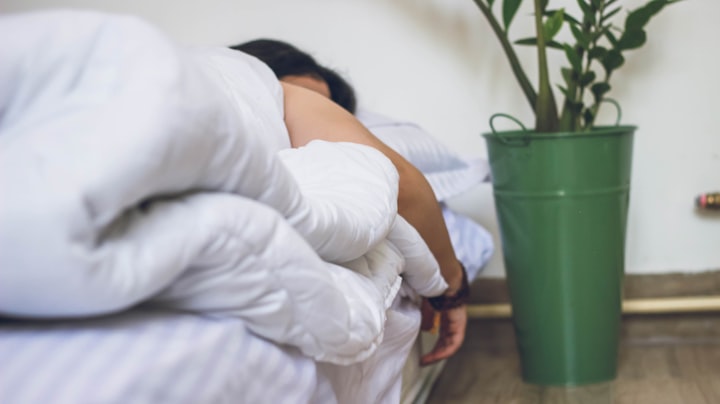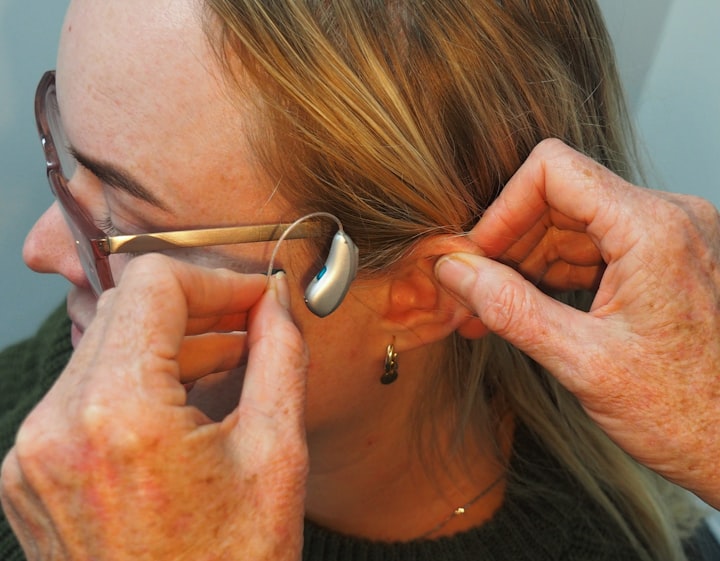4 Reasons Why Sleeping in a Colder Room is Better For Your Health
Warm is nice: cooler is better

That super warm and cozy room with the heat cranked up is so enticing when it’s time to go to bed. However, this may not be the ideal environment.
This will be a quick look at why it may be better to keep your room on the cooler side if you want to get the best sleep possible, and some of the health benefits that may come from this.
Why is a Cool Room Better?
A warm room may make you drowsy but doesn’t look to be the best to get that deep, restorative sleep we desperately need. The heat may make you fall asleep faster — but makes it tougher to stay asleep.
A 2012 research paper from the Journal of Physical Anthropology states that heat increases wakefulness and decreases slow wave sleep and rapid eye movement.
We all know the issues that come from a lack of sleep, and disrupted sleep from an overly warm room, can play havoc with the rest of your day.
One of the big issues with an overly warm room has to do with melatonin. Melatonin is the hormone you secrete that can help with sleep. It’s secreted by your pituitary gland and also plays a role in circadian rhythm.
Without sufficient melatonin release, which can be caused by a warm room, your circadian rhythm gets thrown all out of whack.
Side note: melatonin suppression can also be caused by exposure to light — especially blue light from electronics — later in the day. Ideally, you would cut out screen use an hour or two before bed.
If that’s not possible, at least put your phone into night shift mode, or use a program like f.lux to reduce the blue light on your laptop to give the screen a more natural orange/reddish glow.
Our body's temperature also drops naturally when we sleep, so when you keep your room cooler, you can get to the sleep state quicker.
To sum it up: a cool room helps you fall asleep and stay asleep. So with this in mind, what are some of the health benefits that may come from sleeping in this cooler room?
1. A Cooler Room May Lower Your Stress Hormones
Whereas a hormone such as melatonin can help you fall asleep; stress hormones, such as cortisol, can prevent it.
There are so many things in life that cause us stress and when you throw a lack of sleep on that: it’s like throwing fuel on a fire. Fortunately, sleep is the way we can burn off those stress hormones.
A little cortisol may be a good thing, but too much of it can lead to a long list of issues. When you don’t sleep, your body assumes some sort of trauma must be happening, or else why wouldn’t you be asleep?
Our bodies don’t know if we’re facing famine, environmental disaster, attacks, or you just stayed up too late on Tinder. All it knows is you’re not asleep and those stress hormones remain high.
If you feel rundown, make it a point to get extra sleep. If you feel like a sickness is coming; get more sleep. There are no awards for burning the candle at both ends, and getting extra sleep isn’t throwing in the towel — it’s giving your body what it needs.
2. A Colder Room May Help Combat Insomnia
Insomnia sucks. I think all of us have experienced it at some point. Some nights, it feels like you will never get to sleep.
A cold room may be the solution. Getting to the root cause of insomnia seems to be difficult, but it may be related to body temperature and your inability to regulate it.
We mentioned before that your body temperature naturally drops when you sleep, and a room on the cooler side gets you there quicker. This may be the same issue with insomnia.
If you have temperature regulation issues, this may be the time to try keeping your room cooler. This can help combat temperature raises you may experience that prevents you from getting to sleep and staying asleep.
The main idea with the cool room and insomnia is that your body doesn’t have to work as hard to fall asleep. Therefore, a cool room may help you relax and fall asleep easier.
Climate Change and Insomnia?
Here’s something interesting related to temperature and sleep. One issue regarding climate change is that it may cause some chaos to everyone's sleep quality.
With above-average temperatures — especially nighttime temperatures which have been increasing more rapidly than daytime temperatures — the question is being asked if this will increase insufficient sleep in the global population.
- A variety of organizations have begun to look at this issue, including:
- The Centers for Disease Control
- National Centers for Environmental Information
- The San Diego Supercomputer Center
- NASA Ames Research Center
- The Human Nature Group at The University of California
- and includes funding by NASA, The Department of Defence, and the NSF
This is something that had never crossed my mind before, and you can see how seriously it’s being considered.
It’s an interesting — and scary — proposition that’s easy to overlook. Since we know temperature variations affect sleep, could increased nightly temperatures from climate change amplify human sleep loss? Could entire cities and countries suffer from insomnia and all the health issues that come from a lack of sleep?
3. A Cold Room May Be Better For Your Mental Health
Sleep is a time where we get a mental reset. It’s when our brains catalog and store everything from the day. It’s also when it does a file dump of sorts.
Quality sleep is crucial for our focus, concentration, memory, and creativity. A lack of sleep can cause those things to suffer, which may affect your mental health.
The Harvard Medical School points out that sleep problems are particularly common in people who suffer from depression, bipolar disorder, and ADHD.
Colder sleep may help eliminate issues that prevent your brain from working its best. If you have a big day coming up that requires a lot of focus and creativity: get a full night's sleep. And a cooler room may help with all this.
4. A Colder Room May Help You Lose Some Weight
This is an interesting one, and it has to do with brown fat vs white fat. Brown fat is the “better” type of fat. White fat is where calories are stored. Basically, white fat stores it, brown fat burns it.
When you sleep in a cooler, more optimal temperature, you may allow your body to have more of the brown fat. When you have more brown fat, it's more likely to raise your metabolism and burn some extra calories.
A study by the National Institute of Health looked into this. It’s a small study, but it looked at men who slept in a climate-controlled environment for four months.
They adjusted the temperature over the course of the four months. After a month of sleeping in a 66-degree room, the subjects ended up having more brown fat in their bodies.
This led to metabolic improvements.
What’s interesting is how quickly these changes can stop. The researchers found that after just four weeks of sleeping at a warmer, 81- degrees, all the metabolic advancements were undone.
It went so far that the men ended up with less brown fat than they had from their original scan.
So, How Cold Do You Need Your Room to Be?
When we say cold, we’re not talking teeth-chattering cold, but cool. Ideally, your sheets should feel cool to the touch when you lie down on them.
This is where you may have to experiment with the thermostat, or keeping windows open. There are varying opinions, but the optimal temperature appears to be around that 66-degree Fahrenheit or about 18.5 degrees celsius.
The Sleep Foundation says that 65 degrees is best, with a lot of doctors claiming between 60 and 67 degrees Fahrenheit is ideal (between 15.6 to 19.4 degrees celsius.)
As usual, you’ll need to find which temperature works best for you. If you are a naturally hot sleeper, you’ll want to get it down to that lower end. If you are cold all the time, 67 degrees may work best.
Either way, try out a few different temperatures to see what results in the best sleep possible. Ultimately, your bedroom should be cooler than the rest of your house.
Key Takeaways
I’ve been a certified personal trainer for over 20 years. Everyone always asks me what’s the best way to get fit? What’s the number one tip to get healthy?
For all of those questions, my answer is always the same: sleep.
We have so much more knowledge about how crucial adequate sleep is to all areas of our health. We can consider sleep a “force multiplier.” That means at whatever health state you find yourself in: sleep accentuates it.
If you’re staying fit, eating well, and taking care of yourself: sleep just enhances those things. On the flip side, if you are run down, eating like crap, and overly stressed, a lack of sleep only compounds those issues.
So if you’re looking to get better sleep, try to keep things on the cooler side each night.
About the Creator
James Logie
Personal trainer, nutrionist, traveler, blogger, podcaster, lover of the 80s.






Comments
There are no comments for this story
Be the first to respond and start the conversation.